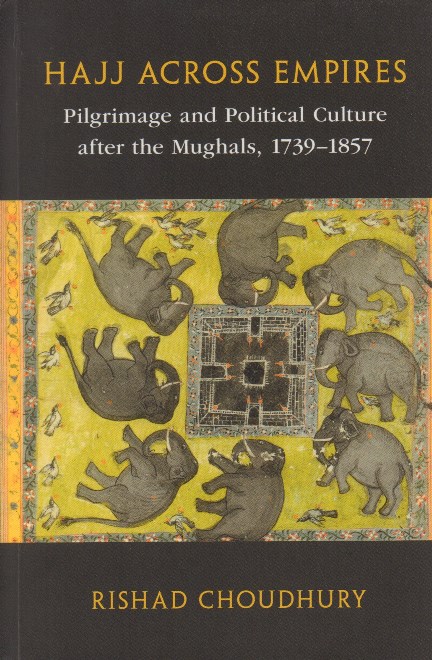Hajj across empires : pilgrimage and political culture after the Mughals, 1739-1857 / Rishad Choudhury.
Yer Numarası
A.IX/8837
ISBN
9781009253703 (hardback)
9781009253666 (paperback)
9781009253673 (epub)
9781009253666 (paperback)
9781009253673 (epub)
Dil Kodu
İngilizce
Kütüphane
Türk Tarih Kurumu Kütüphanesi
Yazar
Basım Bildirimi
First published [1. baskı].
Yayın Bilgisi
Cambridge, United Kingdom : Cambridge University Press, 2024.
Fiziksel Niteleme
xxi, 351, [2] sayfa : resim, harita ; 24 cm.
Dizi
Asian connections ; 14
Genel Not
İndeks s. 343-351.
Bibliyografi, vb. Notu
Bibliyografya s. 303-342.
İçindekiler Notu
Introduction: Hajj in the crisis of empire -- Part I. DEPARTURES: EXPERIENCES AND EXCHANGES IN THE INDIAN OCEAN. 1. Pilgrim passages -- 2. The hajj bazaar economy -- PART II. CROSSINGS: IDEOLOGIES AND INSTITUTIONS ACROSS EMPIRES. 3. The ʻulama on hajj -- 4. Hindi sufis and the hajj -- PART III. RETURNS: STATES BETWEEN HOME AND THE HARAMAIN. 5. The company raj and the hajjis -- 6. Routes of the Muslim state -- 7. Faqirs and fanatics, or, reconfiguring pilgrimage and political culture -- Conclusion: the hajj and the ends of the Mughal World.
Özet, vb.
“Rishad Choudhury presents a new history of imperial connections across the Indian Ocean from 1739 to 1857, a period that witnessed the decline and collapse of Mughal rule and the consolidation of British colonialism in South Asia. In this highly original and comprehensive study, he reveals how the hajj pilgrimage significantly transformed Muslim political culture and colonial attitudes towards it, creating new ideas of religion and rule. Examining links between the Indian Subcontinent and the Ottoman Middle East through multilingual sources – from first-hand accounts to administrative archives of hajj – Choudhury uncovers a striking array of pilgrims who leveraged their experiences and exchanges abroad to address the decline and decentralization of an Islamic old regime at home. Hajjis crucially mediated the birth of modern Muslim political traditions around South Asia. Hajj across Empires argues they did so by channeling inter-imperial crosscurrents to successive surges of imperial revolution and regional regime change“ -- Yayıncı.


